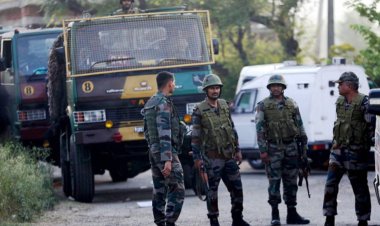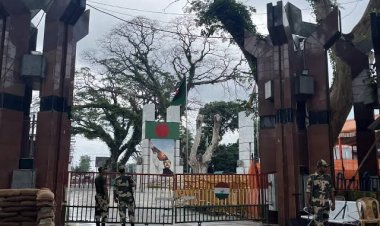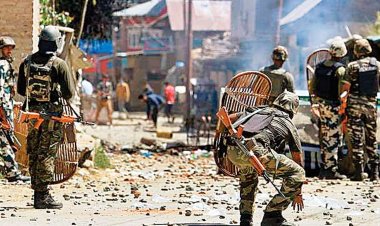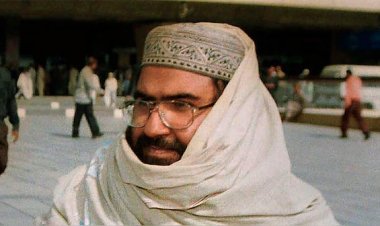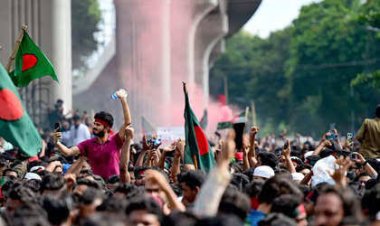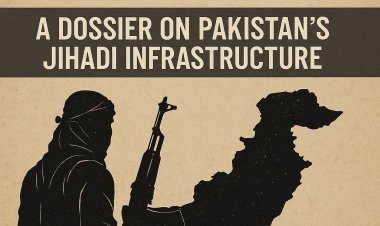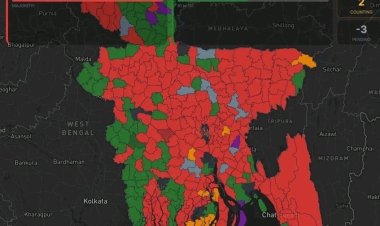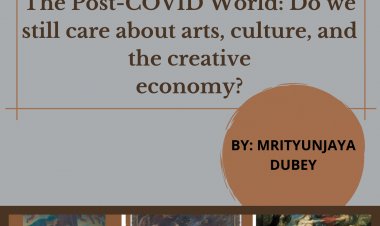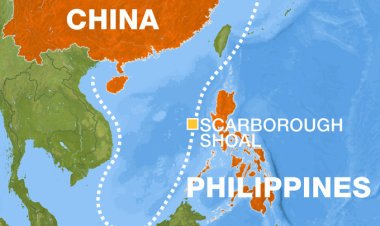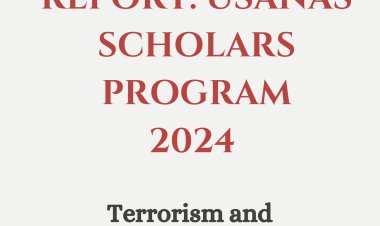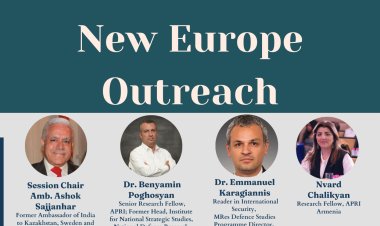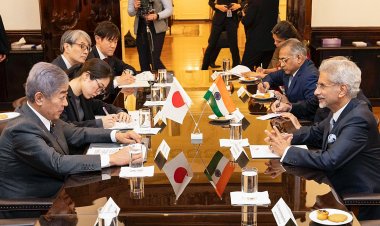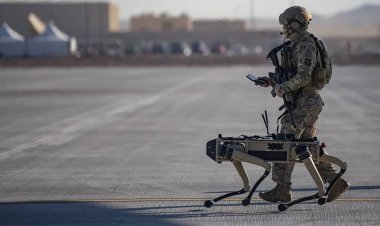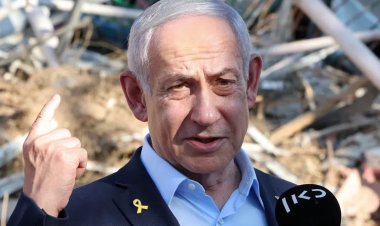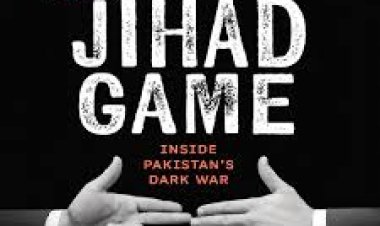The Foreign Hand in Fueling the Terror Factories in India
Qatar's Sheikh Thani Ibn Abdullah for Humanitarian Services (RAF) and Sheikh Eid Bin Mohammad Al Thani Charitable Association (Eid Charity) help foment Islamic extremism in India.
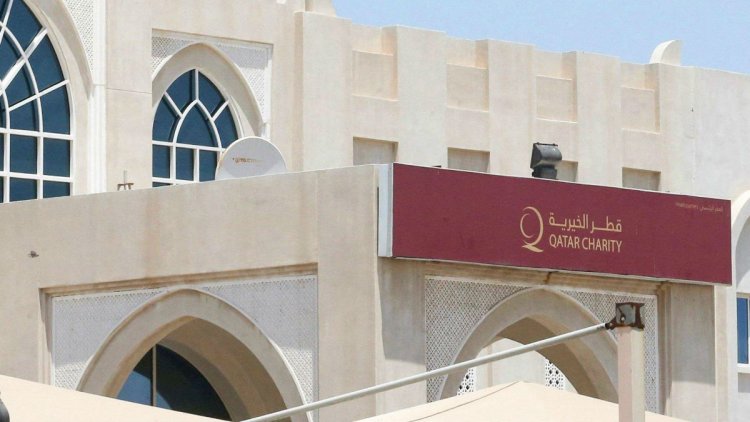
Investigative Report
By Abhinav Pandya and Akshay Kumar
India has faced an increasing threat of terrorism for a long time, with the northern state of Jammu & Kashmir being the flashpoint of Islamist terrorism and radicalization for over three decades. Irrespective of the gradual pan-India spread of terrorism and radicalization trends over the years, not much thought has been given to exploring the underlying dynamics and root cause of its emergence. The security agencies have considerably worked on terrorist organizations, but we have not focused much on the role of Islamist organizations in the proliferation of extremist and radicalization environment in India.
Over the last several decades, many Islamist organizations developed, flourished and survived in India and escaped the radar of our agencies and the strategic community, either because of lack of sufficient knowledge or lack of adequate political will to tackle them. The most prominent feature of such organizations is the legal umbrella under which they operate. They often work under the garb of charity groups, NGOs and religious institutions. However, internally they work to radicalize the selected demography, primarily minorities, leading to the germination of strong fundamentalist terrorist ideologies. Consequently, a sophisticated network of organizations has managed to thrive under the heavy machinery of the Indian state.
The curious case of Eid Charity
The role of external support to such organizations is the most potent driving factor in the spread of radical ideologies in India. For instance, the import of Saudi endorsed hardline Wahabi ideology in the 1980s sprouted the seed of extremism in the Kashmir Valley. In the most recent example, Usanas Foundation came across a massive cache of leaked documents associated with Qatar-based Sheikh Eid Bin Mohammad Al Thani Charitable Association, also referred to as Eid Charity. The leaked data was obtained by the Middle East Forum, a US-based think-tank working on Islamist organizations, and shared with Usanas Foundation. Usanas Foundation's investigation of the leaked data revealed that Eid Charity funneled millions of dollars since 2008-09 in India, funding Islamist organizations associated with the Salafi school of thought in Islam.
Eid Charity came under global scrutiny in 2013 when one of its founders, Abd Al-Rahman al-Nu'aymi, was named as Specially Designated Global Terrorists (SDGTs) by the U.S. Department of Treasury. He was sanctioned for providing financial and material support to al-Qaida and its affiliates in Syria, Yemen, Iraq and Somalia. The association also allegedly works with other reported terror-financing charity groups in Qatar, such as Qatar Charity and Foundation Sheikh Thani Ibn Abdullah for Humanitarian Services (RAF).
The primary investigation of these documents revealed over 1200 transactions made to India either directly under the name of Eid Charity or through individualistic contributions. A total of QR 28.492855 million (USD 7.82 million approx.) were transferred to eight Salafi-based Islamist organizations in India. The money was distributed for projects ranging from direct financial support within the Muslim community to other religious and community action programs such as building/supporting mosques and building handpumps.
|
List of Islamist organizations in India received money from Eid Charity |
||
|
Name of Charity |
No of Transactions |
Money Received |
|
Salafi Philanthropic Society - Kerala |
769 |
QR 17,710,845.00 |
|
Symposium Educational Charitable Society - Ubay |
333 |
QR 7,330,385.00 |
|
Peace Education Center - India |
22 |
QR 1,906,885.00 |
|
Al-Safa Educational, Industrial, and Islamic Charitable Society - India |
64 |
QR 924,460.00 |
|
Al-Habib Educational and Charitable Foundation - India |
23 |
QR 339,780.00 |
|
Management of mosques and schools - India |
6 |
QR 270,300.00 |
|
Relevance Charitable Foundation |
2 |
QR 10,200.00 |
|
Organization of the Charitable Center for the Promotion of Education, Health and Relief |
1 |
QR 3,500.00 |
Source: Data retrieved from documents recovered by Middle East Forum.
The Kerala-based Salafi Philanthropic Society, registered as Salafi Charitable Trust Narikkuni, received the largest cache of funds, involving around USD 4.9 million between 2008-17. This charity group is run by another controversial Qatar-based charity group mentioned above, RAF. The RAF is run by a royal family member of Qatar and was black-listed for terror financing by Arab nations in 2017. The Foundation has serious charges levied against it, including funding al-Qaida affiliated group Al-Nusra in Syria and arming Muslim-Brotherhood-backed fighters in Sudan.
A large part of the money received by Salafi Charitable Trust was directed towards individual financial assistance within the poor Muslim population. Money was also given for ideological projects such as countrywide distribution/promotions of Hijab. Dr. Hussain Madavoor runs the trust as its chairman. He is one of Kerala's most prominent religious figures and vice president of Kerala's largest Salafi organization ⸺ Kerala Nadvathul Mujahideen (KNM). Although KNM has tried to project itself as a progressive group over the years, several controversial people and radical splinter groups periodically associated with it and promoted fundamentalist Salafi faith.
In a video message posted on Facebook in 2018, Dr. Madavoor also supported Peace Education Foundation and its Founder and Managing Director, MM Akbar. Peace Education Foundation has been on the radar of security agencies since 2016 when it came to public notice that several ISIS recruits from Kerala had an association with the foundation. Akbar is also infamous for his controversial religious speeches and is often called 'Zakir Naik of Kerala,' another Islamic preacher absconding from India on terrorism and money laundering charges. Akbar was arrested in 2017 while trying to fly to Qatar on the charges of radicalizing school children through radical content in Peace schools.

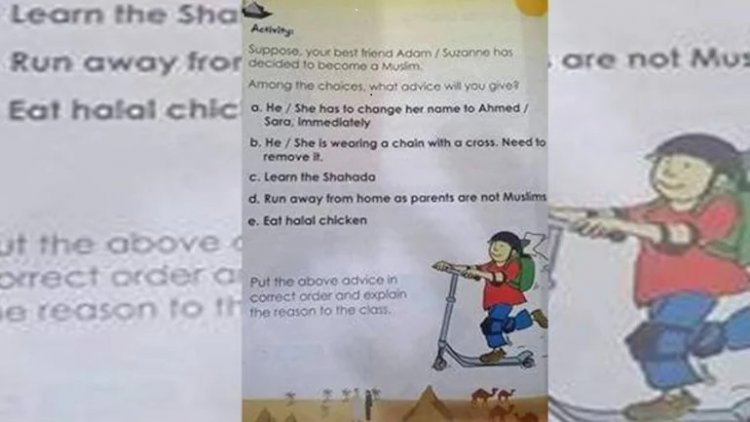
Source: Indiatoday
*The textbook of grade II students in peace schools was found to have content with objective questions on conversion and dying for Islam.
In an audio message released by ISIS-KP, Abdul Rashid Abdullah, the main mastermind behind the ISIS module in Kerala and former employee at Peace Foundation, claimed that there are ISIS supporters among the teachers and parents of Peace schools. He also alleged that during a public interview, the founder of the group MM Akbar tried to conceal the identity of at least two former employees of Peace Foundation who travelled to Afghanistan to join ISIS-KP.
During our investigation, it was found that Eid Charity also funded an organization named Peace Education Centre. It is hard to ascertain the identity of this organization which almost received all the funds in the name of financial support to the orphanage. However, the only possible link could be with the Peace Education Foundation mentioned above, which runs several educational and charitable institutions for orphans. If Peace Education Foundation received money from Eid Charity, it would be the most direct evidence of Eid Charity funding organizations in India that directly employed ISIS recruits and are involved in radicalization activities.
Eid Charity's second-largest reserve of funds to India is transferred in the name of Symposium Educational Charitable Society. This organization received around USD 2.01 million, yet our investigation disclosed no traces of any organization with such a name in the public domain. Following the transactions, it came into notice that the money was transferred for projects mainly in the Siddharthnagar district of the northern Indian state of Uttar Pradesh. A large sum of this money is given to Al-Farooq Group based in the Itwa area of the district. This group is directly funded by Eid charity and is known for its dismissive stand against the Sufi Islam widely practiced in India. The Itwa area, a Muslim majority locality, also harbors other Salafist organizations with foreign backing, propagating fundamentalist Islamic interpretations and intolerant stand towards other Muslim sects.
Another organization named Al Safa Educational, Industrial and Islamic Charitable Society also received funds from Eid Charity. Another controversial preacher, Maulana Sheikh Meraj Rabbani, runs this trust from Kerala. He was also arrested in 2010 over hate speech against other Muslim sects, including Barelivies and Sufis. Rabbani was also amongst several radical preachers in Kerala whose speeches aided the radicalization of ISIS recruits. Rabbani is also involved in a high-profile Heera Gold fraud case where he used faith and urged people to invest in a Ponzi scheme. The dual involvement of this radical preacher in religious hate-mongering and financial swindlings provides high impetus to the probable misuse of the funds received by the Al Safa group.
Most interestingly, a large amount of Eid Charity money is transferred to Al Safa in the name of supporting the operation of the Salafi Charitable Trust mentioned above. It clearly shows that the foreign money is circulated within these Salafist organizations, and many groups may only exist to work as proxy organizations to escape the scrutiny of law enforcement agencies and tax regulatory bodies. This could also be true since other recipients in the Eid Charity list, such as Al-Habib Educational and Charitable Foundation and Relevance Charitable Foundation, are publically ghost, and our investigation couldn't find any traces of their existence. Therefore, it is no surprise that these groups may be shell organizations, the most common practice amongst institutions funding global extremism and radicalization.
Sowing the dangerous seeds of extremism
The whole investigation shows that this diabolical funding mechanism has been in place for a long time. It has evolved and acquired a sophisticated form over the last several years. The non-uniformity of transactional patterns makes it almost impossible to ascertain the actual purpose for these funds. The money comes under small heads for small-scale undertakings, which are extremely hard to trace and makes it almost impossible to link this money with any nefarious anti-national activity. The utilization of funds is also suspicious since most of these organizations have almost no online and popular media presence. Our investigation also couldn't find any public records of using these funds or any social media promotion of any of the projects, a standard practice of other mainstream charity groups.
Another major cause of concern is the financial support for Salafi organizations in Kerala. Over the past years, this southern state of India has become the hub of radicalization and recruitment ground for several transnational terrorist groups. Salafi organizations in Kerala have constantly been accused of supporting violent extremism, and several ISIS recruits from the state have been associated and radicalized through them. Banned Kerala-based Islamist terror groups such as the Student Islamic Movement of India (SIMI) and extremist groups like Popular Front of India (PFI) have used hardcore Salafi teachings for radicalizing youth and recruitment. The fact that raises alarms is that these transactions also match the period when radicalization and extremist trends in Kerala acquired a steeper trajectory.
Another prominent feature is the connection between Eid Charity and other Qatar-based controversial charity groups like RAF. These organizations are already accused of working in cahoots to fund global terrorism. Therefore, the funding of Islamist organizations operating in India could also be strategic, and hence their mutually enforcing operation in India is highly troubling. There seems to be an agenda and extensive patronage from the Qatari state to export fundamentalist Salafi faith. India has had a rich history of progressive Islamic practices for centuries, and an external targeted design could disrupt the social fabric and become fatal for India's national integrity.
The possible support to sleeper cells of the transnational and subcontinental terrorist organizations is jumbled up with welfare activities. Hence, the most significant challenge to identifying such Islamist organizations is to weed out legitimate legal actions from those facilitating terrorism. Indian security establishment needs to scrutinize these Islamist organizations, especially those getting financial support from internationally accused groups like Eid Charity. The recent decision by the government of India to tighten the Foreign Contribution Regulation Act (FCRA) is a welcome step in this direction. However, much more comprehensive tracking of such Islamist organizations is needed at the grass-root level, and Indian security and strategic community need to build a holistic approach to eradicate such networks.
Disclaimer: This article is the individual scholastic contribution of the authors and does not necessarily reflect the organization’s viewpoint. The article was orginally published by the Sunday Gurdian.
Abhinav Pandya is the founder and CEO of Usanas Foundation. Akshay Kumar is Head of Research and Program Operations at Usanas Foundation.

